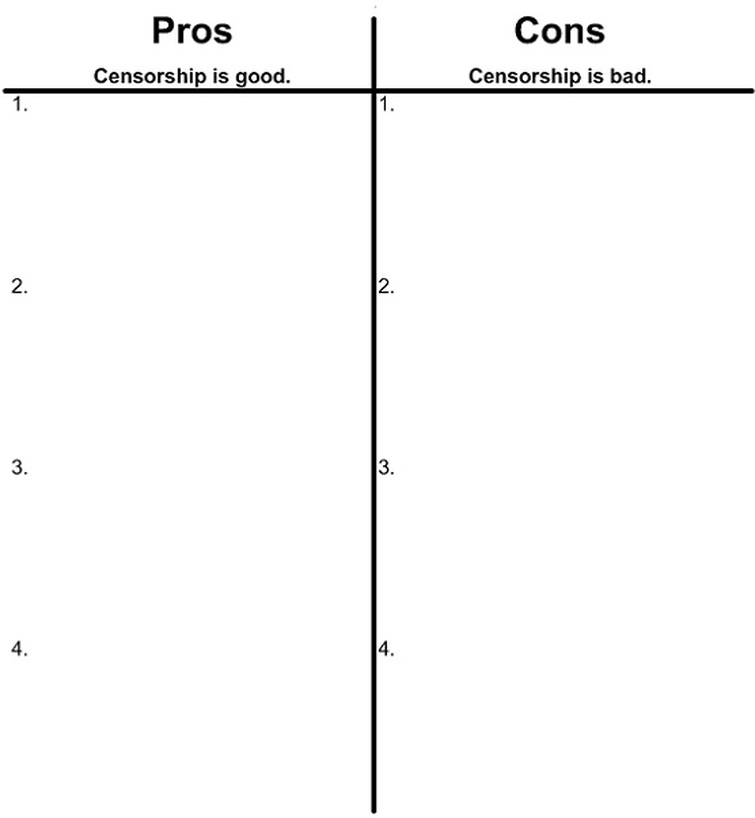China Qin Dynasty Activity
Making Sense of Censorship
|
Censorship is the control of what people read, write, see, and do. Emperor Qin Shi Hangdi practiced total censorship. Just as one might argue whether or not Qin's rule was good or bad for China and its people, the role of censorship is also up for debate. Whether you believe that censorship is good or bad, you live in a world where censorship is at work in all aspects of your life all of the time.
Begin this activity by watching the trailer to the movie Fahrenheit 451, based on a Ray Bradbury novel. In the movie, firemen practice censorship by burning books. Pay close attention to the reasons given. |
|
- In one form or another, censorship is all around you. Because of that, I want you to continue this activity by listing all of the forms of censorship you encounter in your daily life. You may bullet-point your list.
- After you have made a good list of the many types of censorship you live with, I want you to think deeply about the reasons the forms of censorship on your list are in place. Do your best to summarize the reason in a single word. Examples might be "safety" or "control."
- Then, complete the Pro/ Con T-chart. Underneath each side, pro and con, write out four reasons someone might argue that censorship is good or bad. The "Pro" side is equal to the statement "Censorship" is good. The "Con" side is its opposite, "Censorship is bad." Use complete sentences and use good writing practices.
Censorship, for example...
|
Example of Censorship
|
Reason for Example
|
Censorship Pros and Cons
In My Opinion...
Now, review your bullet-pointed list and the reasons you gave for censorship. Then look over your pros and cons. After thoughtful consideration decide whether you are for or against censorship. Here, you must choose one or the other. You may not be both for and against something. Then, complete this exercise by writing an "Opinion" piece to be published in the school newspaper.
- Open a Google Doc and title it "In My Opinion."
- Write a minimum of one paragraph that clearly outlines your case for or against censorship.
- Clearly state your claim and support your claim with evidence that helps prove your claim and commentary that explains how your evidence proves your claim.
- Use your paragraph guide to make sure that you follow good writing practices.

